The Shanghai Yu Garden Tour offers a unique blend of artistry and tranquility, inviting visitors to uncover the hidden design principles of this iconic space. With 28 scenic areas that seamlessly merge rocks, water, and plants, it’s easy to see how harmony plays a crucial role in Chinese gardens. But there’s more beneath the surface—an exploration of cultural symbolism and spiritual significance awaits those willing to look closer. What deeper connections might one find in this serene oasis?
- Key Points
- Discovering Yu Garden’s Hidden Design Principles
- The Essence of Harmony in Chinese Gardens
- A Journey Through 28 Scenic Spaces
- Engaging in Qi Gong, Meditation, and Tea Ceremony
- The Cultural Symbolism Behind Garden Elements
- The Role of Chinese Gardens in Self-Cultivation
- Exploring the Spiritual Significance of Yu Garden
- Customer Experiences and Feedback on the Tour
- Frequently Asked Questions
- What Is the Best Time to Visit Yu Garden?
- Are Children Allowed on the Tour?
- Is the Tour Wheelchair Accessible?
- What Should I Wear for the Tour?
- Can I Bring Food or Drinks Into the Garden?
- The Sum Up
- More VIP Experiences in Shanghai
- More City Tours in Shanghai
- More Tour Reviews in Shanghai
- Still browsing? Here are more Shanghai experiences we've covered recently
Key Points
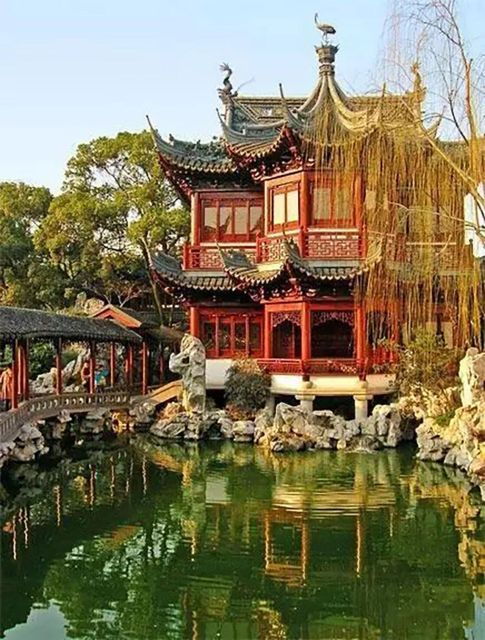
- Yu Garden’s intricate design embodies harmony, blending rocks, water, and plants into a cohesive and spiritual landscape.
- The garden features 28 unique scenic spaces, each inviting visitors to explore and appreciate their individual stories and meanings.
- Natural elements are thoughtfully placed to emphasize balance and beauty, creating a tranquil atmosphere for reflection and self-cultivation.
- Symbolic elements like rocks, bamboo, and lotus flowers convey deeper cultural meanings, enhancing the garden’s spiritual significance.
- Visitor experiences highlight the serene ambiance, despite occasional concerns regarding ticketing and tour organization.
Discovering Yu Garden’s Hidden Design Principles
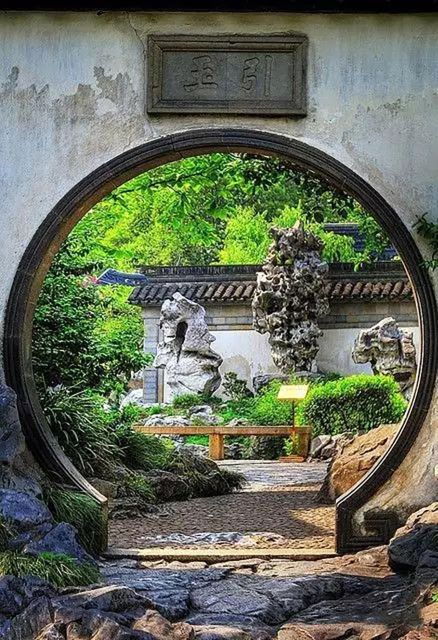
While exploring Yu Garden, visitors often find themselves captivated by its intricate design principles that embody harmony and spirituality.
Each nook and cranny reveals a thoughtful layout, blending rocks, water, and plants into a cohesive whole. It’s more than just pretty scenery; it’s a living representation of balance.
The pathways guide guests through 28 scenic spaces, each with its own story to tell. This garden isn’t just a feast for the eyes; it’s a place for introspection.
The careful placement of elements reflects deeper cultural meanings, inviting everyone to pause and appreciate the artistry behind this stunning piece of nature.
Looking for more options in Shanghai? We've reviewed plenty of other experiences.
The Essence of Harmony in Chinese Gardens
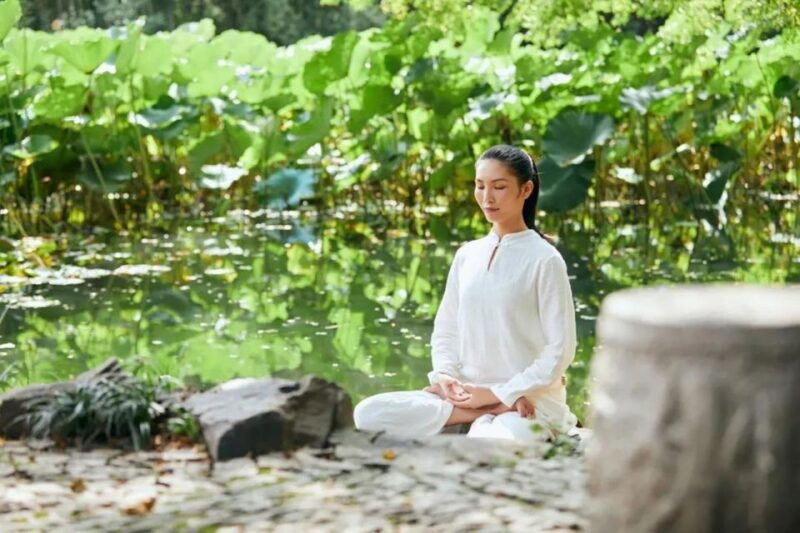
Yu Garden stands as a prime example of how Chinese gardens embody the concept of harmony. Every element works together seamlessly, creating a tranquil atmosphere that invites reflection and peace.
The placement of rocks, water, and plants isn’t random; it’s all about striking a balance. This harmony reflects a deep-rooted philosophy in Chinese culture, emphasizing nature’s beauty and the spiritual journey of self-cultivation.
Visitors can’t help but feel a sense of connection, as the garden tells stories through its design. In essence, it’s not just about aesthetics; it’s about finding inner peace and understanding one’s place in the universe.
A Journey Through 28 Scenic Spaces
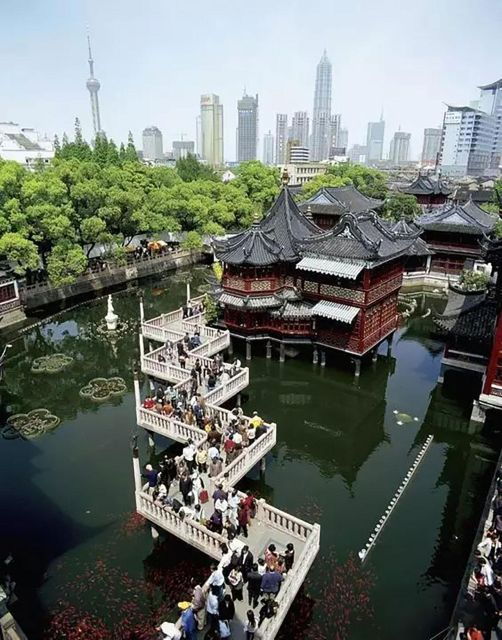
Stepping into the Yu Garden feels like entering a living artwork, where each of the 28 scenic spaces tells its own story.
Visitors wander through winding paths, discovering hidden treasures like elegant pavilions, tranquil ponds, and meticulously arranged rockeries. Each corner invites contemplation, showcasing the garden’s underlying principles of harmony and spirituality.
From the lush greenery to the intricate carvings, every detail has a purpose and meaning. It’s a journey that captivates the senses, encouraging guests to connect with nature and the rich cultural history of Chinese gardens.
Every element in the garden serves a purpose, inviting visitors to engage with nature and the deep cultural heritage of Chinese gardens.
Each space feels like a chapter in a beautifully written poem.
Engaging in Qi Gong, Meditation, and Tea Ceremony
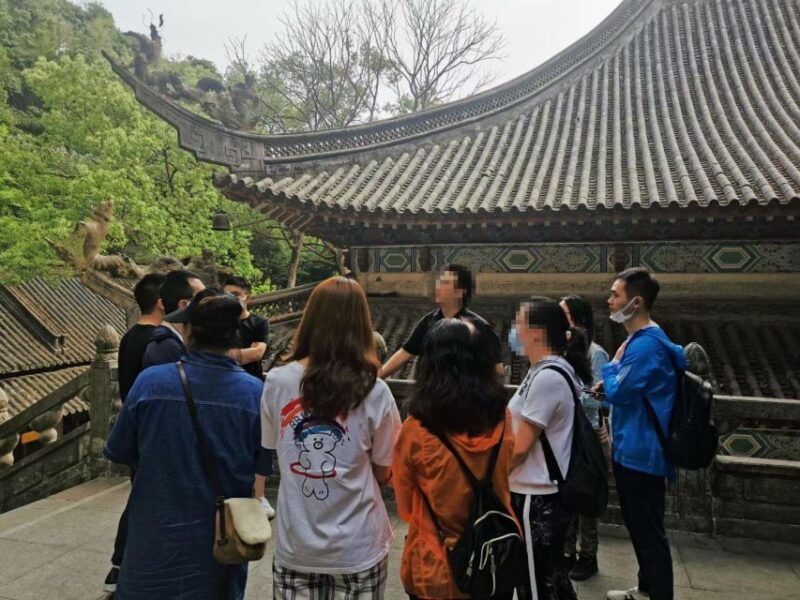
As visitors enjoy the tranquility of the garden, they’ll find opportunities to engage in Qi Gong, meditation, and a traditional tea ceremony.
These practices not only enhance the experience but also foster a deeper connection with the serene environment.
Here’s what to expect:
-
Qi Gong: This gentle exercise helps cultivate energy and balance, perfect for grounding oneself amid the garden’s beauty.
-
Meditation: A peaceful moment to reflect and soak in the surrounding harmony, allowing for personal introspection.
-
Tea Ceremony: An artful ritual that showcases the elegance and significance of tea, offering a taste of tradition.
These activities truly enrich the visit!
More Great Tours NearbyThe Cultural Symbolism Behind Garden Elements
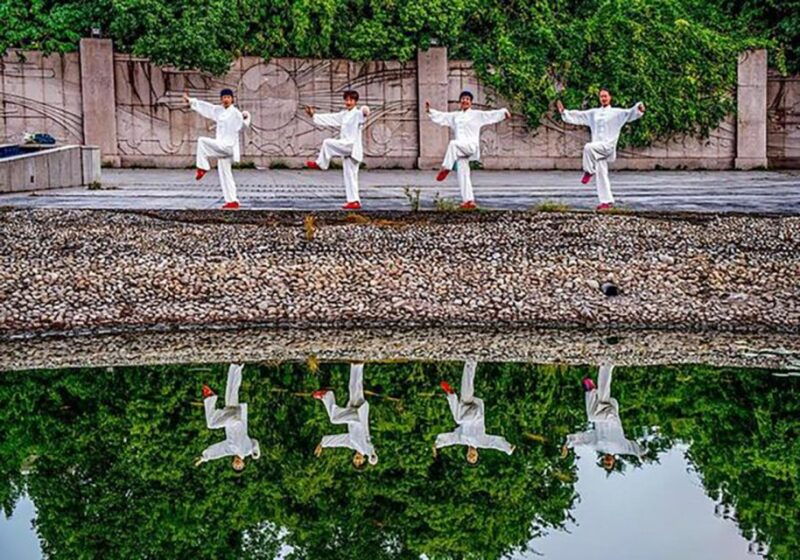
In the world of Chinese gardens, every element tells a story steeped in symbolism and meaning.
Take the rocks, for instance; they represent strength and endurance, mirroring mountains that inspire harmony.
Plants like bamboo symbolize resilience, while lotus flowers embody purity and enlightenment.
Even the layout isn’t random; it mirrors natural landscapes, creating balance.
Water features aren’t just pretty; they symbolize wealth and prosperity.
Every path guides visitors, reflecting life’s journey.
These thoughtfully chosen elements work together, creating a tapestry of culture and philosophy that’s both beautiful and profound, inviting a deeper appreciation of life’s intricate connections.
The Role of Chinese Gardens in Self-Cultivation
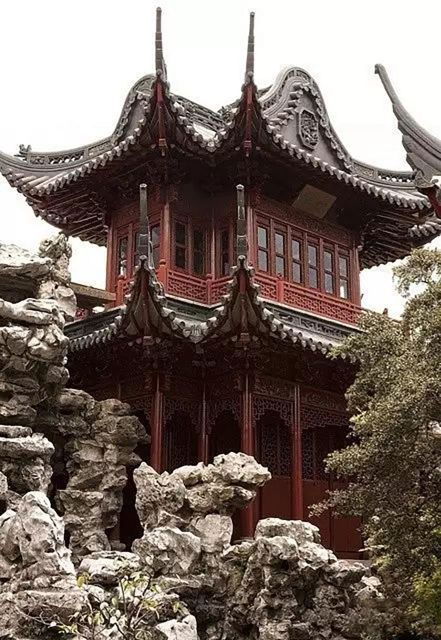
While many might see Chinese gardens as mere beautiful landscapes, they actually serve as vital spaces for self-cultivation and personal growth.
These gardens are designed to provide tranquility and reflection, making them ideal for anyone looking to enhance their inner self. Here are three key roles they play:
-
Mindfulness: The serene environment encourages meditation and deep thought.
-
Connection: They foster a bond with nature, reminding visitors of life’s cyclical beauty.
-
Balance: The harmonious design promotes emotional and spiritual equilibrium.
In essence, these gardens are more than pretty sights; they’re transformative spaces for self-discovery.
Exploring the Spiritual Significance of Yu Garden
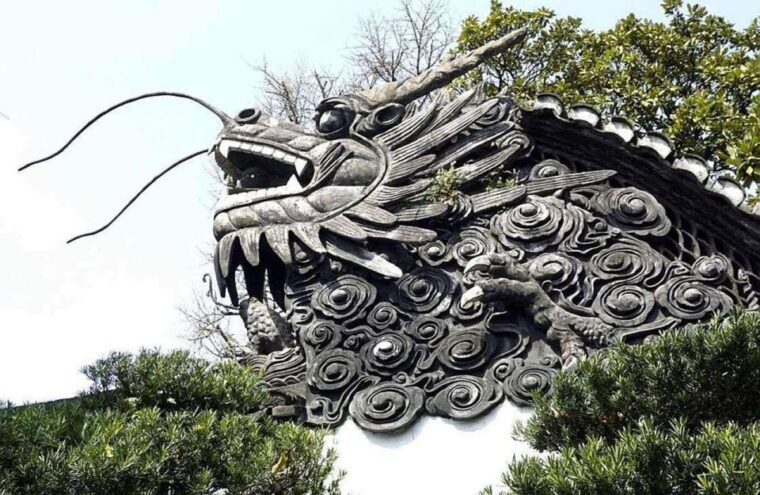
Yu Garden stands out not just for its beauty but for its deep spiritual significance. Each corner of the garden reflects harmony, a key element in Chinese philosophy. Visitors can explore the symbolism behind plants, rocks, and architecture, creating a serene space for reflection.
| Element | Symbolism | Spiritual Insight |
|————–|————————|—————————|
| Water | Flow and adaptability | Embraces change |
| Rocks | Stability and strength | Represents resilience |
| Bamboo | Flexibility and growth | Encourages personal development |
In this garden, every detail invites introspection and a connection to one’s inner self.
Customer Experiences and Feedback on the Tour
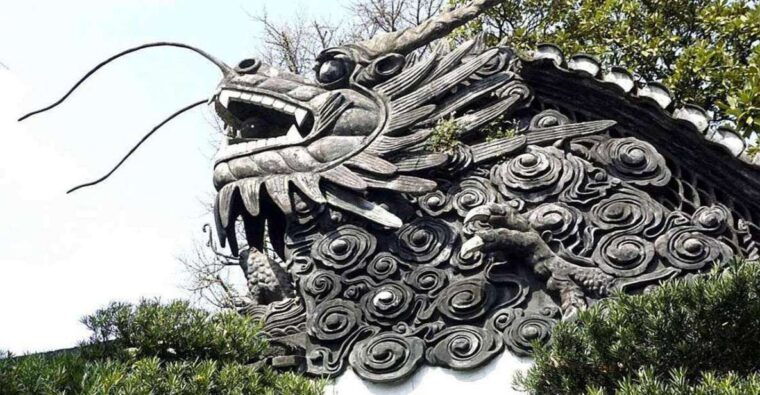
Four reviews paint a mixed picture of the Shanghai Yu Garden Tour, revealing both the garden’s stunning beauty and some hiccups in the tour experience.
Guests appreciated the serene atmosphere but flagged a few concerns:
-
Ticket Acceptance Issues: Some faced problems with their tickets being recognized, leading to frustrating delays.
-
Tour Organization: A few felt the tour could’ve been better structured, with spots overlooked.
-
Refund Policies: Mixed feelings about the refund process, despite the option for free cancellation.
Frequently Asked Questions
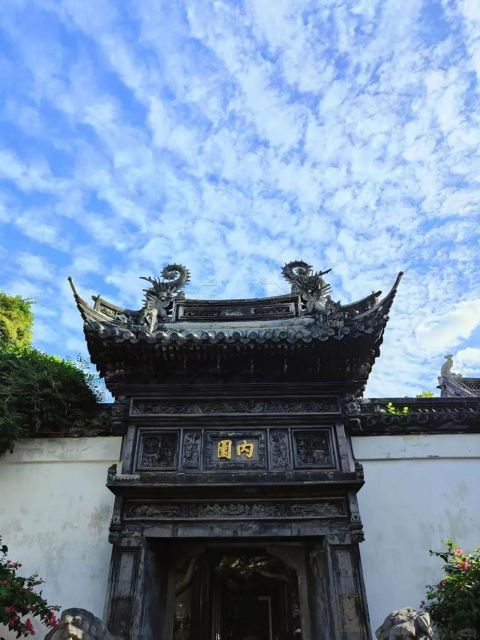
What Is the Best Time to Visit Yu Garden?
For the best experience at Yu Garden, he recommends visiting during spring or autumn. The weather’s mild, flowers bloom beautifully, and the crowds are smaller, making it easier to enjoy the garden’s serene atmosphere.
Are Children Allowed on the Tour?
Yes, children are welcome on the tour. Families can enjoy exploring the beautiful garden together, experiencing its unique design and cultural significance. The tour’s activities offer something engaging for all ages.
Is the Tour Wheelchair Accessible?
The tour isn’t fully wheelchair accessible. While some areas might accommodate, uneven paths and steps could pose challenges. It’s wise to check in advance for specific needs to ensure a smoother experience.
What Should I Wear for the Tour?
For the tour, she should wear comfortable shoes and lightweight clothing, perfect for walking. A hat and sunscreen would help, too, especially if it’s sunny. Staying relaxed will make exploring the garden even more enjoyable!
Can I Bring Food or Drinks Into the Garden?
Visitors can’t bring food or drinks into the garden. It’s best to enjoy the serene atmosphere without snacks. Instead, they can savor refreshments at nearby cafes after exploring the beautiful landscapes and cultural symbols.
The Sum Up
In the end, the Shanghai Yu Garden Tour isn’t just about pretty plants and rocks; it’s a journey into the heart of Chinese culture. Visitors leave not only with stunning photos but also a deeper understanding of harmony and spirituality. Whether they’re practicing Qi Gong or sipping tea, the garden invites everyone to connect with nature and themselves. It’s a unique experience that resonates long after the tour wraps up, making it a must-visit for anyone seeking peace and reflection.
You can check availability for your dates here:More VIP Experiences in Shanghai
- Shanghai Huangpu River Luxurious Private VIP Yacht Cruise
- Shanghai VIP River Cruise Experience with Dinner and Guide
- Shanghai VIP Night Cruise with Private Yacht and Dinner Option
- Luxury Outlet Shopping Half Day Experience in Shanghai
- Shanghai: The Bunds Iconic Views by Luxury Night Cruise
- Shanghai One Day Tour Private Luxury Car GoKart and Film Studio
More City Tours in Shanghai
- Full-Day Old Shanghai City Lifestyle and Culture Private Tour with Lunch
- Shanghai River Cruise & City Lights
- Seat in Coach Shanghai Highlight Half Day City Tour
- 6 hour Private Shanghai Tour with PVG Airport Pickup City Dropoff
- Private Full-Day Shanghai City Tour: Chauffeur & English Guide
- Shanghai half-day city tour/Yuyuan special experience/the bund
More Tour Reviews in Shanghai
- Full-Day Shanghai Top Sights Private Guided Sightseeing Tour
- Shanghai: Shanghai Eternal Love Ticket
- Shanghai Hanzi Meditation Experience at Jade Buddha Temple
- Wuzhen: Xizha and Dongzha Water Towns Night Tour
- Ancient Water Town By Bus,Yu Garden,Bund By Bike or Escooter
- 6-Hour Shanghai Layover Tour from Pudong Airport
Still browsing? Here are more Shanghai experiences we've covered recently
- Shanghai’s 15 Top Airport Transfers
- 7 Top-Rated Shanghai Tours & Experiences
- Full-Day Shanghai Top Sights Private Guided Sightseeing Tour
- Shanghai: Shanghai Eternal Love Ticket
- Shanghai Hanzi Meditation Experience at Jade Buddha Temple
- Wuzhen: Xizha and Dongzha Water Towns Night Tour
- Ancient Water Town By Bus,Yu Garden,Bund By Bike or Escooter
- 6-Hour Shanghai Layover Tour from Pudong Airport
- Shanghai Guided Tour: Universities, KMT remnant, Tech Firms
- ERA Acrobatics Show Ticket with Private Transfer
- Shanghai: 2-Day Private Tour with 5-Star Hotel Stay
- Shanghai Disneyland with Transfers Plus 2-Night Accommodation in 4-Star Hotels
